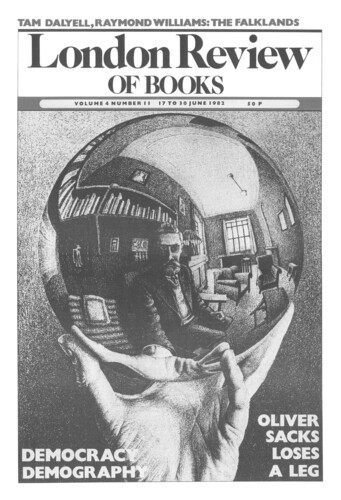More democracy?
James Fishkin, 17 June 1982
Forty years ago, in Capitalism, Socialism and Democracy, Joseph Schumpeter argued that the expectations for democracy bequeathed to us by the classical tradition were hopelessly unrealistic. He offered an alternative bare-bones definition, one actually satisfied by many large-scale nation-states. ‘The democratic method,’ he said, ‘is that institutional arrangement for arriving at political decisions in which individuals acquire the power to decide by means of a competitive struggle for the people’s vote.’ This minimal definition has since been treated by many as a pale shadow of the full-bodied democratic idea. After all, élites may ‘compete’ for office in elections without any very meaningful or widespread participation by the electorate, without majorities being satisfied on particular issues, or without the groups that care most intensely about particular issues getting what they want. While this may be the kind of democracy realised in many nation-states, the question naturally arises whether so pale a version of the real thing is worth having.

